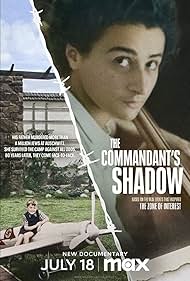



21/29
To be honest, I was a little disappointed by this documentary
Tale
It follows Hans Jürgen Höss, the son of Rudolf Höss, the commandant of the Auschwitz camp, as he is confronted with his father’s involvement in the murder of over a million Jews during the Holocaust. Hans-Jürgen Höss: I don’t think my mother was really aware of everything. She probably had some vague knowledge, but I’m sure she didn’t know any details. Occasionally, using some truly gruesome archive footage, we are introduced to Hans Höss, the son of the man who not only commanded the infamous Auschwitz-Birkenau death camp, but was also largely instrumental in the creation of the complex in the first place.
Meanwhile, in London, we meet survivor Anita Lasker-Wallfisch
Loosely using a narrative from the autobiography he wrote while awaiting trial after the war, we learn a little of the politics that drove this efficient administrator to build a facility that ended up killing ten thousand people a day, while seemingly keeping quiet at home with his family about what his day job really was. She is a remarkably stoic character who believes there is not much to be gained from raking up old coals. This is a constant source of annoyance to her daughter Maya, who seems to be living a life that sees her suffer vicariously. It is as if she believes she has inherited some of her mother’s fears and traumas and finds it almost impossible to find closure.
It is this slightly confrontational aspect that didn’t sit so well with me
To do so, she is determined to regain her German citizenship and leave the UK to live in her homeland despite not knowing a word of German. The rest of the film focuses on questioning how much Hans (who was about four years old at the time) knew about his father’s activities. Has his brain intentionally excluded any memory of these atrocities or does he know more than he is letting on? There is something bordering on the accusatory in the way this man, now in his eighties, is being interviewed – and by his own pastor son Kai as well.
Indeed, for families of considerable faith, where was God in all this?
Indeed, as we go on, the emphasis shifts more to the needs of these adult children rather than maintaining a more interesting focus on the story of those who were in the camp at the same time, separated by a thin brick wall that might as well have been a mile wide. The last five minutes generate one of the most moving set pieces I have ever seen on television when the two meet – and that is what I wanted so much more of. The innocent child and the innocent victim chat honestly over coffee and strudel about what they remember, what they know and, most importantly, how humanity can learn from this and what it means to be God’s “chosen people”. With nationalism and anti-Semitism on the rise in Europe, could the unthinkable happen again?
It might have been fascinating to just sit and listen to them
Maybe that wasn’t an option – at times Anita didn’t seem that engaged with the whole process, perhaps because she had erected her own psychosomatic walls to protect herself from the awfulness of her experiences as she approaches her own significant milestone. These kinds of documentaries won’t be possible for much longer, and this one is definitely heartbreaking, occasionally a little funny and thought-provoking, but I think just the two of them with a little Riesling would have been much more intimate and powerful.



 21/29
21/29



 21/29
21/29